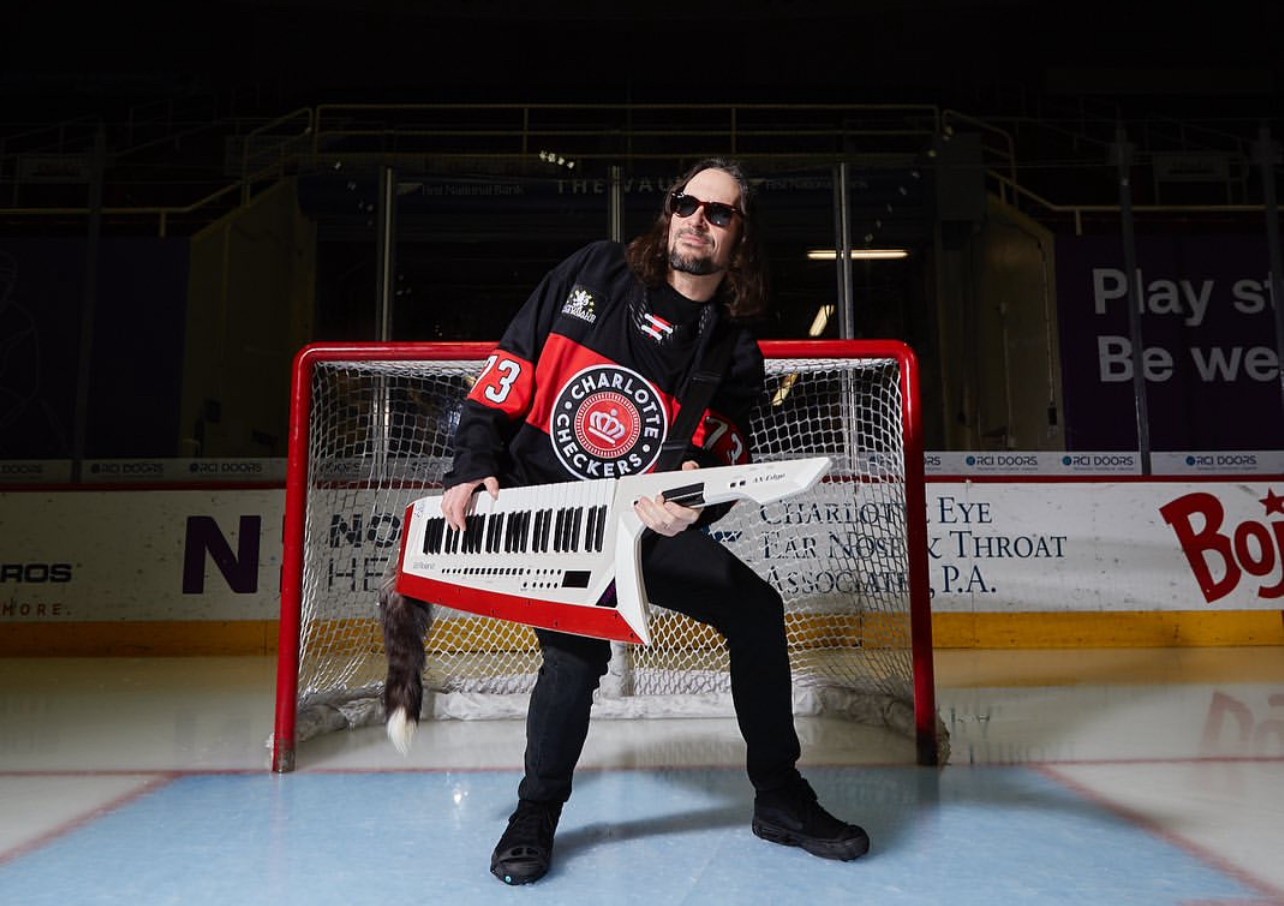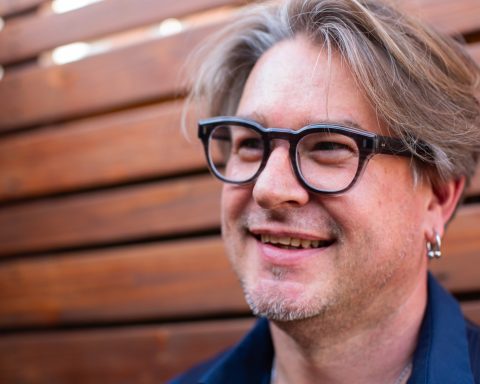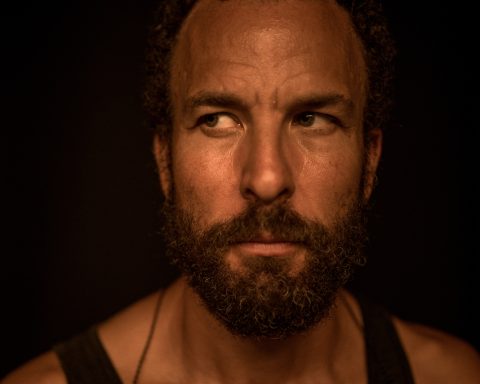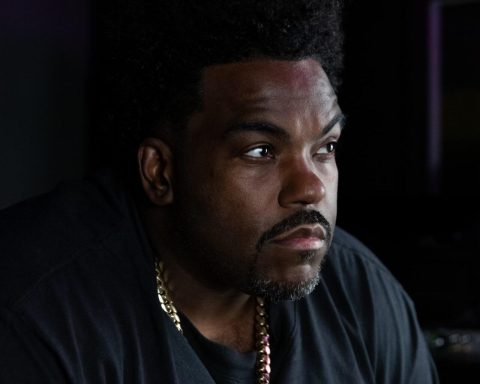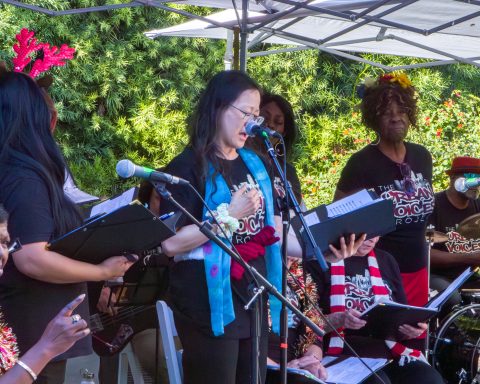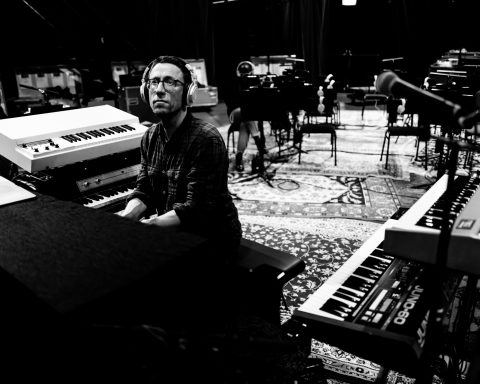There are many pathways to a career in music, but for Jason Atkins, aka Greazy Keyz, they all lead to the same destination: being able to support his family. Still, the Greenville, SC-born keyboardist has a unique trajectory. During a career sharing stages with Blackberry Smoke, Los Lonely Boys, Roger Daltrey, among others, he’s achieved his greatest success as organist for AHL hockey club the Charlotte Checkers. Since 2015, he’s delighted the team and its rabid fans, earning Greazy Keyz a following for his high-energy theatrics, which often feature the Roland AX-Edge Keytar. The prolific performer talks about his music business journey, building a brand, and lending his piano chops to the HBO hit satire, The Righteous Gemstones.
Music Magnet
What are some of your earliest childhood musical memories?
I started a little later than most. I had an older brother and some older cousins who all got into the guitar. Growing up, there was an old upright piano in the house. One day, when I was 11 or 12, I sat down at the piano and picked out “Heart and Soul” by ear. That was the catalyst. In high school, I talked my folks into helping me buy my first digital piano: a Roland RD-500.
Did you take lessons and explore the trained side of things?
I did not. Growing up in rural South Carolina, having a lot of free time, I started picking out songs by ear, which continued to grow. Later, in high school, I was accepted into a magnet program where half the day was regular school and half was music theory and music history classes. In hindsight, I wish I had more theory, but it was the school of hard knocks, figuring it all out and developing my voice that way.
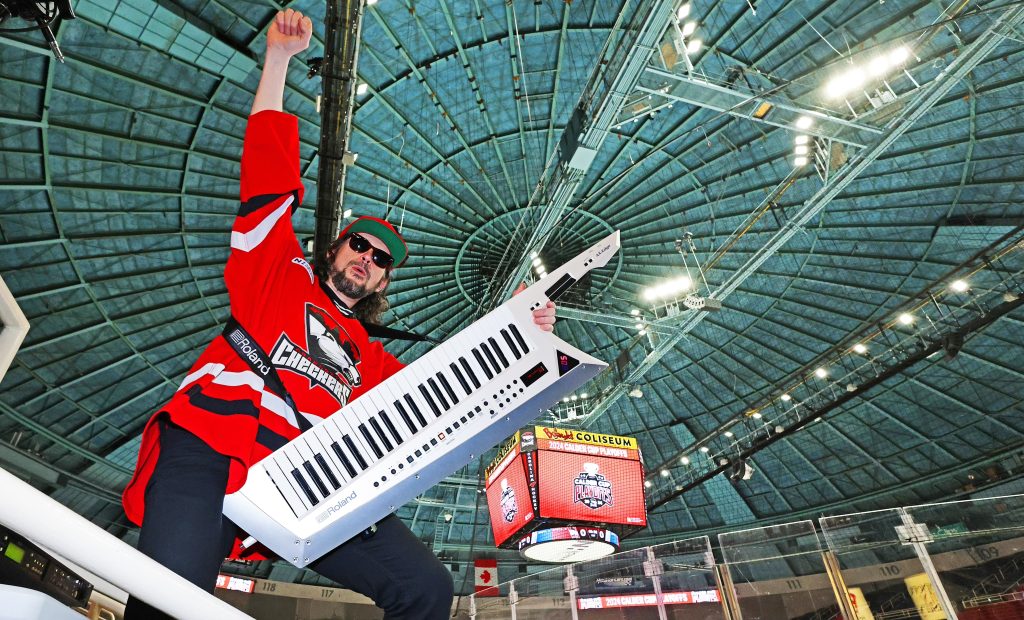
The Greaz Pit
Did you play hockey at any point in your life? It seems like a very obscure sport for South Carolina.
Honestly, I was a music kid all the way. There aren’t very many keyboard players in Charlotte. So I started branching out and picking up sessions and gigs with different bands. I’d heard about organists at Major League Baseball games, but it never occurred to me that there would be an opportunity to be a professional sports organist.
The Checkers have been around since the ’50s. In 2015, they moved back to their original coliseum in Charlotte, where they had a Hammond C3 organ they wanted to utilize again. I never thought about being involved in sports until 2015, when I got a call from a friend of a friend who was the piano teacher for one of the Checkers’ front office people.
I told him I’d love to audition. To see that vintage organ sitting there in a vintage coliseum—it was a dream come true. I got the gig and learned about hockey from that point on. Ten years later, I’m still learning.
"I have to be prepared to figure out how to keep hyping the audience or play off the energy of
the game."
Give us the whole picture of the game experience.
It’s such a fast-paced game. I have to be prepared to figure out how to keep hyping the audience or play off the energy of the game. I wear a headset, and we have a creative director who helps direct what’s happening.
When the Checkers wanted to bring the organ back, they wanted the nostalgia of the sound. But they didn’t anticipate the impact. I’ve implemented backing beats to elevate the energy and work in tandem with a DJ who plays EDM music. We jam along while he plays a track.
My favorite part is that the organ sits near the corner of the rink, so fans are all around me. We call it the Greaz Pit, and it’s become a fan favorite.
The Coolest Job
You also play for a Minor League Baseball team. Does that allow you to work all year long?
The regular hockey season runs from October to April, and playoffs can run until June. Baseball season starts in April and runs until September, so it lines up perfectly. It’s the coolest job, literally.
What does a typical week look like?
During the Checkers season, they’ll have approximately 38 to 40 home games, broken into two weeks at home and two weeks on the road. A team will come to town, and we’ll play the same team two nights in a row. I’ll end up with 4-6 games monthly for the Checkers from October through April. And then with baseball, they’ll have about 60 home games and their home stands.
"When Roland came out with the AX-Edge, I bought one immediately. People would come to a party, see a keytar, and it would become the life of the party."
Wielding the AX-Edge
How did the AX-Edge become part of your set?
I’ve owned a lot of Roland gear from the beginning. When Roland came back out with the AX-Edge, I bought one immediately. I started using it primarily for original gigs, and then in a wedding band I played with. People would come to a party, see a keytar, and it would become the life of the party.
I was involved with the longest game in AHL history for the Charlotte Checkers. I had taken the night off because I was celebrating my daughter’s birthday but was listening to the game. When I heard them go into double overtime, I called and said, “Look, if you guys go into triple overtime, I’m coming down there.”
Sure enough, they did. I took AX-Edge with me, and the first chance I could, they said, “OK, Greazy, go.” I broke out the keytar playing “Don’t Stop Believin’,” and the place erupted. It was an amazing experience, and they played another three overtimes. From then on, it became a thing. It hypes people up and brings a lot of joy.
Setting it Up
You customize your tones, correct?
I’ve developed several tones that I love, plus I play bass at a lot of gigs, so I use a key-bass split. With AX-Edge, you have the USB port and can load WAV files. That was a game-changer. I play tracks straight from the keytar and can walk around the concourse ripping a solo. For the playoffs, they allowed me to bring other musicians in. So it was me and a drummer who played a Roland V-Drums kit.
Your bio says you spend several hours a week strategizing your set list.
Over ten years with the Checkers, I’ve built a repertoire of songs loaded on an iPad—everything from sheet music to actual tracks I’ve developed.
I’ll track what’s hot musically—what might be trending on TikTok or the biggest hits. This season, it’s Chappell Roan and Kendrick Lamar. Boom, you play that, people love it. But I’ll do Van Halen’s “Jump” or “Tom Sawyer.” I’ll go into a game with an idea of two or three brand new songs. Then, for the most part, I’m constantly feeding off the crowd.
"I've seen fights with teeth and blood all over the ice, and I've got to play something."
What are some wild memories over the years?
I’ve seen fights with teeth and blood all over the ice, and I’ve got to play something. Baseball has a much slower pace. But even with baseball, we might get a rain delay, and the team will lean on me to entertain the fans while we wait. I’ll be out with my AX-Edge playing “Sweet Caroline,” “Friends in Low Places,” anything everyone can sing along to, waiting for the rain to pass.
A Righteous Gig
You are also active in film and TV. Can you tell us about working on The Righteous Gemstones?
They’re very secretive, and like most film and TV work, they always need everything yesterday. The Righteous Gemstones is filmed in Charleston, South Carolina. But the primary composer is a guy in Charlotte named Joseph Stevens. Anytime he needs something more advanced than some chords, he calls me. So whenever you hear Aunt Tiffany, that’s me, and I play keys on some of the songs they’ve released for Baby Billy.
Every season, The Righteous Gemstones has a wrap party in Charleston, and I got to join the house band, Tears of David. We would entertain all the cast and staff from the TV show and have some of the actors get up and sing. It was a great experience.
"So whenever you hear Aunt Tiffany, that's me, and I play keys on some of the songs they've released for Baby Billy."
Forging a Path
Do you have any advice for musicians who want to break into live sports accompaniment?
You’ve got to go for it. I fell in love with music very early on, and I knew. I had a corporate job early on while moonlighting, playing music, teaching lessons, and trying to forge a path. Then the corporate job went away. That was a huge lesson: I felt no more stability in a corporate job than in pursuing music.
Reach out. Make that initial step to a minor league team, or if you’re in school, go to your college baseball team. I’m from the school of not saying no. If I can squeeze three gigs in on a Saturday, I will. I’ve been married for 26 years and raised a family playing music. I’ve been blessed and am tenacious.
Let’s talk about your name and branding because your Greazy Keyz merch game is amazing.
I created the name as an email handle about 30 years ago. My style is based in southern rock, blues, and funk, so “greazy” encapsulates that attitude.
I’ve been very fortunate to work with a great local visual artist in Charlotte who captures the music. The merch game developed out of a desire to supplement my income by selling some T-shirts. Luckily, the team supports that. That’s grown into a dozen logos on shirts, hockey pucks, cowbells, and even coloring books. I’ll see people rocking Greazy Keyz t-shirts, not only at games but also around Charlotte.
I was never driven to be a focal point or a band leader, but my experience as Greazy Keyz changed that. Getting the name out and growing my ability to be Greazy Keyz has been the best.
